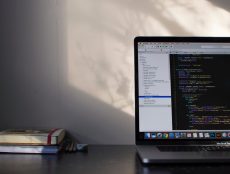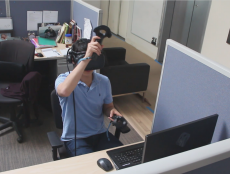
Interviews
Dr. Kathryn Linder Discusses Online Learning Efficacy and OSU’s New Database
By Henry Kronk
November 14, 2017
Dr. Kathryn Linder is a Research Director at Oregon State University’s Ecampus Research Unit. Last week, they announced the launch of the Online Learning Efficacy Research Database.
“We’re very excited about it,” Dr. Linder said over the phone. “It’s a way for faculty, distance education administrators and any other stakeholders who might be interested in the research on the outcomes of online and hybrid education to search the collection of academic articles that are studying those specific modalities in comparison to traditional face-to-face methods.
Henry Kronk: Could you give us a brief summary on the state of that research compared to other fields? What’s the funding like? What’s the availability of information?
Kathryn Linder: That’s a great question. One of the great challenges with online efficacy research is it’s pretty hard to do in a rigorous way because classrooms are not lab settings. It can be challenging to have comparative environments where you can really measure in a concrete way and compare certain modalities to other modalities without having lots of other variables poking in and making a difference in terms of student learning.
This is an area of research that is still relatively active and there are some disciplines where there isn’t really any research comparing the modalities. Some people would say that there’s enough research out there but a lot of faculty are still really questioning whether this works in their specific discipline. One of the big goals of this database is to help faculty be able to search by discipline so that they could get a sense of what was going on in their particular field. It’s also intended to allow them to contribute back to the research if they see a gap and want to fill it.
But the funding for this kind of research is a little bit challenging. At the federal level for example were not seeing a ton of funding for this but there have been some private research companies and some consultancies that have been working on this research for quite some time and their reports in addition to peer reviewed articles are also included in the database.
HK: We do our best at ElearningInside to stay up-to-date with what’s going on in education research, but when it comes to comparing wide swathes, it seems like there has been a movement lately where researchers are becoming much more specific with what they study. Do you find that’s true?
KL: I think especially when it comes to technology and technology in education, that’s definitely true. In part it’s because technology keeps changing. We have so many different tools and techniques in the way that people are incorporating those things into their classrooms in what ever modality they might be teaching in. A lot of the research is focusing in on very specific components, a very specific software tool, or a very specific element of student learning.
That makes a lot of sense in terms of helping us understand what’s working and what’s not. With this database, we’ve taken a more meta look and we’re only looking at outcomes comparing different modalities. But absolutely, the literature in this field continues to grow and expand. It is getting very granular as you would see in many other fields as well, especially as online education becomes more of a standard in more institutions.
HK: So let’s say that somebody has no experience or background in online teaching technology and who might specialize in a completely different subject wants to teach an online class. What can they learn from the ECRU’s new database?
KL: I think this would be a great starting point to have a sense of the studies that have been done in their specific disciplines or in closely related disciplines if they were looking to increase their confidence in their ability in online learning in a particular field. But I also think that many instructors who are new to online learning will want to explore lots of different avenues in terms of learning how they can incorporate technology into their classrooms including things like talking with their colleagues who are already doing it. So I think the database is one thing among many that they can look to. It’s a really good starting point to get a sense of what the broader literature is saying about where this works and where is it most effective.









“Your style is so unique in comparison to other people I’ve read
stuff from. Thanks for posting when you have the opportunity,
Guess I will just bookmark this page.”